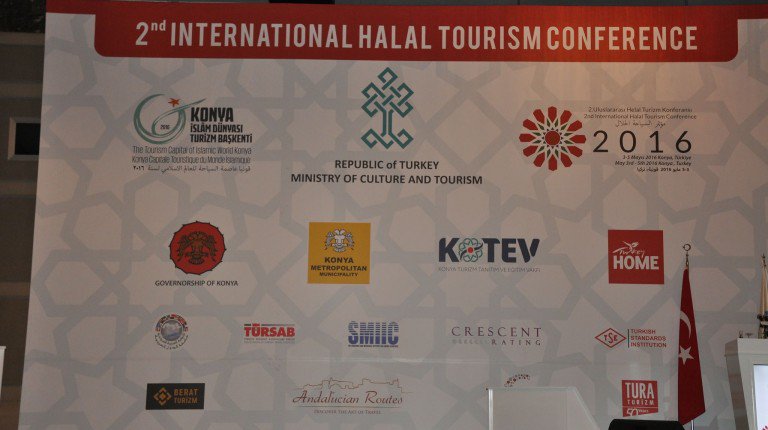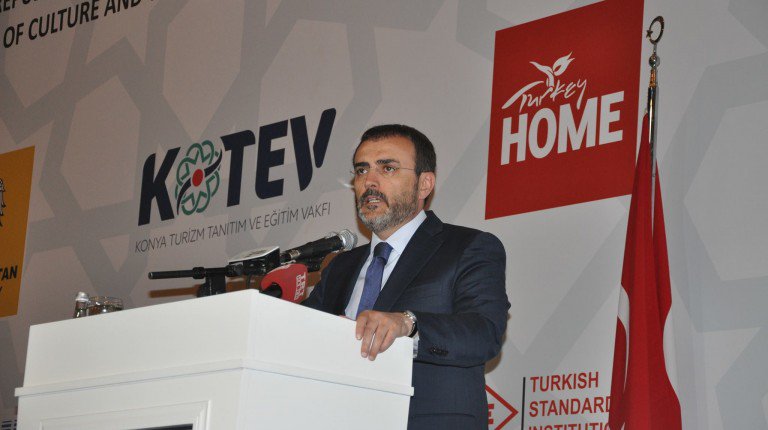Halal tourism: a growing trend for Muslim travellers
Halal tourism: a growing trend for Muslim travellers
Hotels are the choice places to stay for those travelling to different countries. Some Muslims may not be bothered by seeing beer stocked in their hotel room’s fridge or that there may or may not be separate swimming pools for men and women. However, for others, it is a concern that they must face when booking a room which is why a new movement has emerged in halal tourism.
 |
Halal, which refers to Islamic rules that deem what is permissible and what is not, is a term that has just recently become associated with tourism.
Earlier this month, the second international halal tourism conference was held in Konya, Turkey. In December 2015, the Islamic Conference of Tourism Ministers announced Konya to be the capital of Islamic tourism for 2016.
Halal tourism is a concept developed due to the high demands among Muslim tourists travelling for business or leisure that need to adhere to the requirements of halal. This includes an assortment of things, such as hotels serving halal-only food and no alcohol, private beaches and swimming pools for women, conservative uniforms for the working staff, and for rooms to be equipped probably with what Muslims need in order to perform their daily prayers.
Although the requirements are not that complicated, there is a significant shortage in halal-friendly hotels in almost all touristic destinations, including in the Middle East and Muslim countries.
Turkey’s minister of culture and tourism Mahir Ünal officially opened the world’s biggest international halal tourism conference in Konya. The two-day conference was titled “Developing Halal Tourism Industries” with the aim of shaping the future of a sector currently worth $150bn.
The event featured a number of high profile guests from across the globe, including Bandar Fahad Al-Fehaid, a delegate from the Arab Tourism Organisation of the Arab League, Irfan Onal, the director general of Turkey’s Ministry of Tourism, Tahir Akyurek, the mayor of Konya, and Muammer Erol, the governor of Konya.
 |
Hundreds of delegates from over 30 countries with over 110 buyers attended the conference, including the UAE, Saudi Arabia, Iran, Croatia, Singapore, UK, USA, Malaysia, Indonesia, South Africa, Kuwait, and Qatar. This is in addition to the attendance of tourism boards, travel agencies, tour operators, and hotels and airlines that attended the opening day of the conference, which brought together some of the world’s leading names in the travel industry.
The opening day featured a number of keynote speeches on topics such as “Technology and its benefits to halal tourism” and “Muslim traveller’s needs”, along with panel discussions and workshops.
At the conference, Onal said: “We are delighted to host this conference on this historic day. As a minister of tourism, I will continue to support this kind of tourism and our aim as a tourism destination is targeting 50 million tourists into the country. We would like to thank the delegates who have come to this event and have shown how we can all grow together.”
Al-Fehaid said: “We are delighted to be part of a global conference and representing the Middle East. An event like this is very important and shows how we can unite the world through tourism.”
Alongside the conference, there is also a three-day exhibition featuring businesses from across the world.
Onal told the audience at the conference: “Our target is to reach 15 million Muslims by 2020. Our tourism has been greatly affected by terrorism. We lost 12% or our revenue. We are working hard to make people feel safe again and we want to announce that Turkey is a safe country so we can have all tourists return. We want to promote new destinations like Konya, Azmier, and the Turkish Riviera, and introduce new types of tourism. One of them is the halal tourism industry. Now we have over 40 hotels in Turkey, and in the government we are dedicating three different ministries working together to reach more than 100 hotels across the country in 2017. Turkey, being a cultural centre in the heart of Europe, has the potential to increase its share of halal tourism and become a pioneer in the industry.”
A recent study has revealed that in 2015 the estimated number of Muslim tourists were 117 million, representing close to 10% of the entire travel economy. This is forecasted to grow to 168 million visitors by 2020 and 11% of the market segment with a market value projected to exceed $200 billion.
This is the second time the event is being held in Europe, following the success of the inaugural event in Andalucía, Spain.
Comparing the first and second halal tourism conference, organiser Domah, from CM Media based in UK, said: “This year we have worked to evolve the conference from where it was in terms of the content. We have developed the content from just an introduction to more of a developmental strategy providing people with more information of the needs of the Muslim traveller, and what we are able to do to help them with the type of the delegates we choose. We aim to bring the halal industry forward and thankfully it is growing year by year.”
Domah added: “We chose Turkey this year, because of what Turkey has to offer in terms of heritage and history and the important role that turkey has to play in the halal tourism industry. They have halal resorts and they were one of the first countries along with the UAE and Malaysia to start working with that concept and created the standard to provide more for the Muslim traveller. We aim to hold the conference annually. We want to showcase as many destinations as possible. I also don’t think it is a good idea to showcase in only Muslim countries, because it won’t be helping our cause. We want to start bringing people together, make Muslims travel to new worlds and explore new cultures, because in Islam we are told to live in this world as if we are travellers.”
